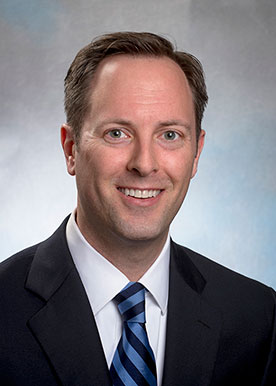
Robert L. Owens, MD
Dr. Owens is a graduate of Princeton University and the College of Physicians & Surgeons at Columbia University. He completed training in Internal Medicine at Massachusetts General Hospital, followed by specialty training in Pulmonary and Critical Care Medicine at Harvard Medical School. He is additionally board certified in Sleep Medicine, and is currently an Assistant Professor of Medicine in the Divisions of Sleep Medicine and Pulmonary & Critical Care at Harvard Medical School and Brigham and Women’s Hospital. He attends clinically in the medical intensive care unit and in the Sleep Medicine clinic.
In 2008, Dr. Owens joined the Malhotra laboratory seeking a way to use physiology to understand clinically relevant problems. His research is focused on the interplay between lung volumes and the upper and lower airways. Working with Amy Jordan, PhD he measured the impact of lung volume changes on upper airway collapsibility. Later attempts to more accurately assess upper airway collapsibility independently from changes in lung volume have led to basic questions regarding upper airway behavior. Specifically, the upper airway of many patients does not behave according to the Starling Resistor model – the most commonly used model to explain obstructive sleep apnea. Instead, many subjects exhibit negative effort dependence – where increasing respiratory effort leads to less flow through the airway – which may suggest a different anatomical location or mechanism of upper airway collapse. This work, undertaken with Andrew Wellman MD PhD, might be important in moving toward personalized treatment of sleep apnea.
Focusing on the lower airways, Dr. Owens is interested in the relationship between lung volumes and airway resistance, especially given the concomitant rise in the prevalence of obesity and asthma. He received a K23 award from the NIH/NHLBI to investigate the impact of lung volume changes (using non-invasive positive pressure ventilation) on asthma symptoms and airway reactivity. More broadly he has been invited to speak and write on the “overlap syndromes,” a term used to describe those patients with both obstructive sleep apnea and chronic lung disease. All these research efforts have culminated in more than 20 peer-reviewed original publications.
Dr. Owens is honored to receive the 2014 James B. Skatrud Young Investigator Award, and acknowledges that such an award would not have been possible without the strong support of his mentors and research colleagues. Additionally, he is thankful to the ATS and specifically the Sleep and Respiratory Neurobiology Assembly for its efforts to encourage and involve junior investigators.



